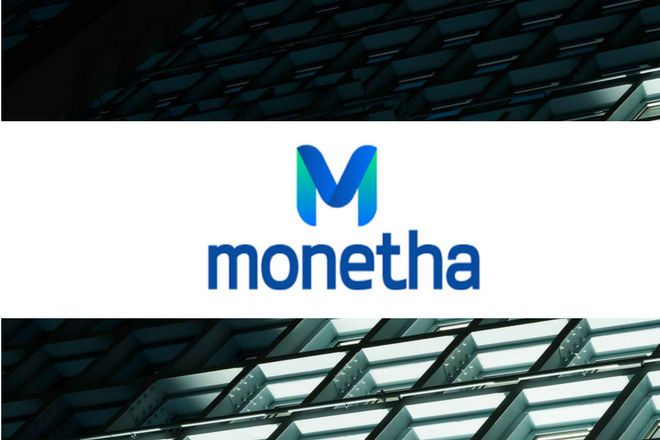Monetha believes that bringing decentralization to the trust relationship between buyer and seller thanks to the blockchain will revolutionize eCommerce and retail. We look at the company’s intention to build an Ethereum-based payment processing platform that improves on existing payment speeds and fees.
The eCommerce Industry
Can you remember eCommerce before PayPal? It’s hard to negate the influence the online payments portal has had on global online shopping, an industry valued in 2016 at US$1.915 trillion, and projected to climb to US$4 trillion in 2020.
eCommerce currently accounts for 11.7 percent of total sales in the US (from 2016 figures), with a total of US$394.86 billion spent online.
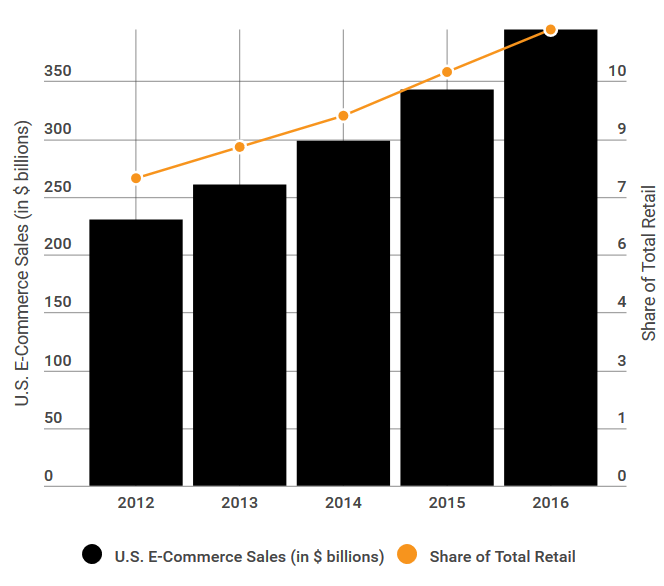
Globally, 2016 eCommerce sales hit US$1.86 trillion and are expected to rise to US$4.48 trillion in 2021.
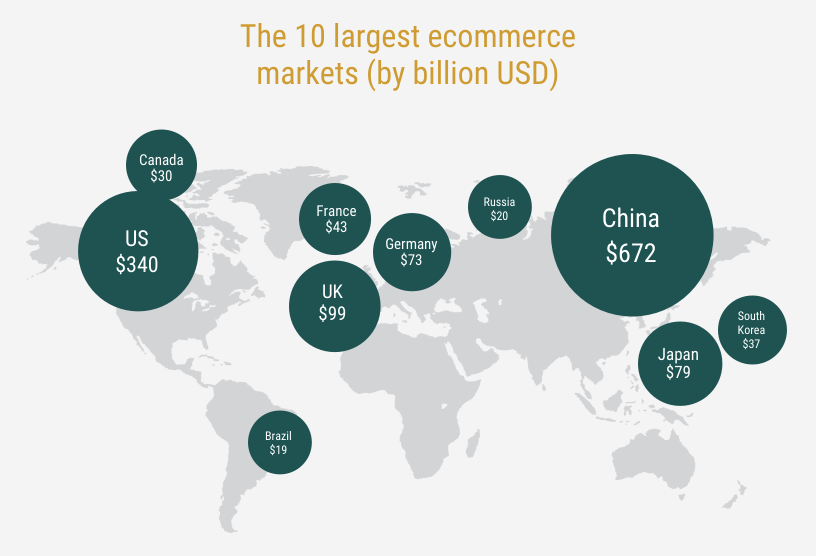
Issues with Online Payment Services
No industry is without its problems, and eCommerce is no different. Despite its steady climb, it’s still plagued by a number of issues.
The first of these is trust and reputation. Customers have to build, from scratch, a trust relationship with each online merchant they engage with. While popular payment gateways such as PayPal or Stripe minimise the need for using individual merchant-owned gateways, they themselves are not without problems, which brings us to the second issue.
Cost can be a major consideration in using an online payment platform. Fees are high, even more so for merchants who have to incur additional transaction costs. When coupled with international exchange rates, cross-border fees make doing business on a global scale more costly than it should be.
Moreover, transfers can take time to process depending on which service is used. A service like PayPal can freeze or limit an account without apparent reason (up to 6 months at a time!), and due to the website’s policies, some countries are not able to access PayPal at all.
Commerce in the Blockchain Era
The advent of cryptocurrency and the blockchain has seen an increased number of consumers opting to pay with digital currency. A World Economic Forum report predicts that 10 percent of the world’s GDP will be stored on the blockchain by 2027.
While bitcoin is the most popular payment choice due to its growing adoption, Ethereum (currently at a market cap of US$31.5 billion) is itself a rapidly growing market.
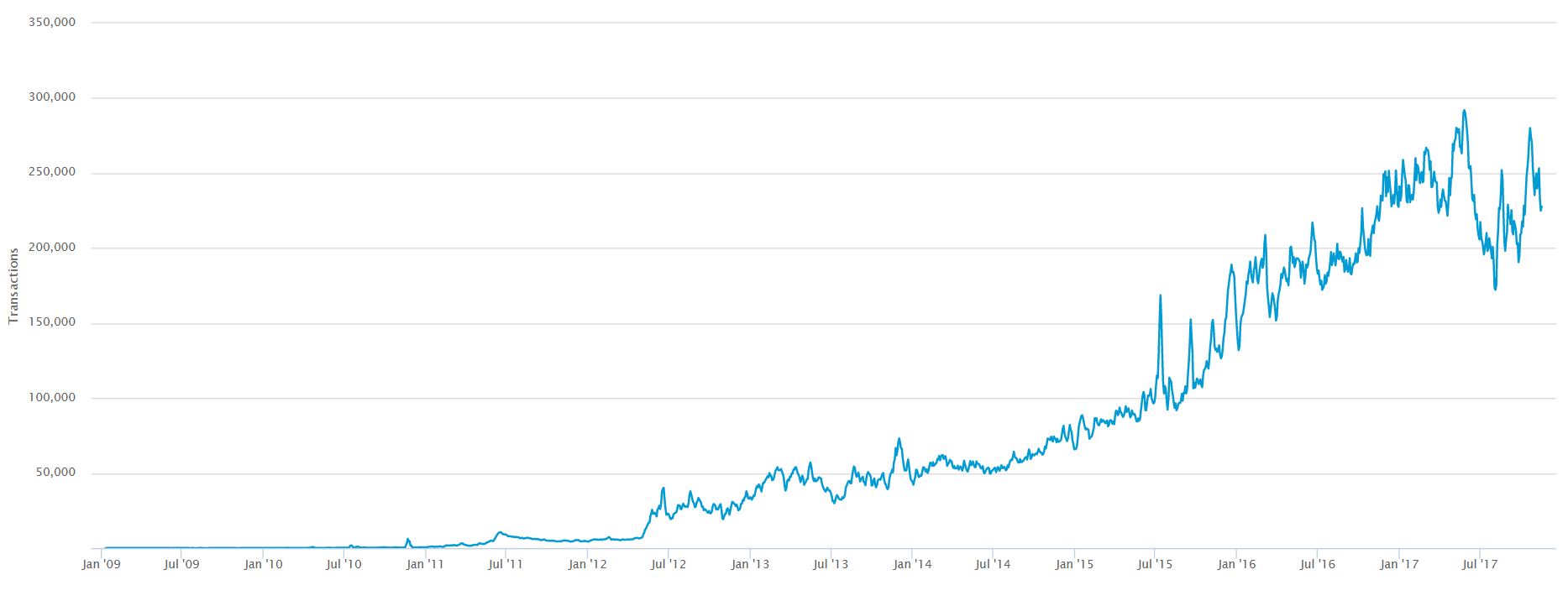
What differentiates Ethereum from other platforms is the fact that digital assets can be built on the platform itself. This strengthens the ether token, as it’s deployed across industries and is used for anything from digital music rights management to reselling ether addresses. At this stage, it’s still very difficult, however, to use ether to pay for goods and services either online or offline.
Infusing Decentralized Trust into Global Commerce
Monetha is a decentralized trust and reputation system (DTRS) that incorporates a payment gateway via the Ethereum blockchain. The payment processing system is built on the principle of trust between merchant and buyer.
Every transaction records buyer reviews that is accessible by other buyers in future, ensuring that customers are able to make informed decisions during the buying process. Smart contracts assess the quality of the relationship and amend trust score ratings for both seller and buyer accordingly. A rating is paired with a specific wallet address, and buyers are given a default rating score at registration.
The blockchain that is created during a transaction allows for claims to be filed or solved, and warranties to be honored, furthering the sense of trust between merchants and their customers.
Making Global Commerce Cheaper, Faster and Easier
Monetha is a single step, flat-fee system built for efficiency.
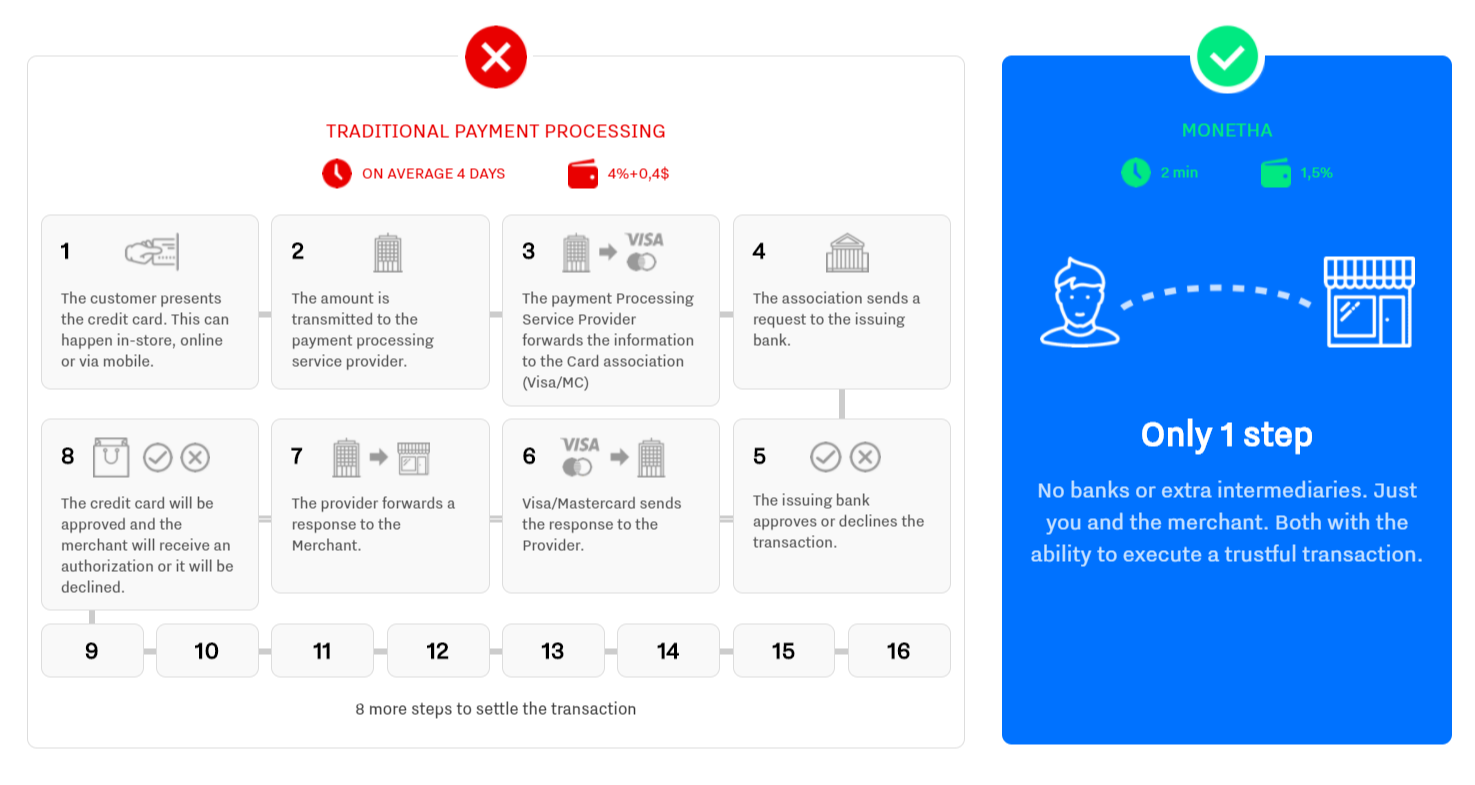
Compared to traditional payment gateways, Monetha is both cheaper and faster — significantly so. The service has a flat-fee structure of 1.5 percent and is up to 5 times cheaper than other services. Processing time, on the other hand, is increased by up to 10,000 times.
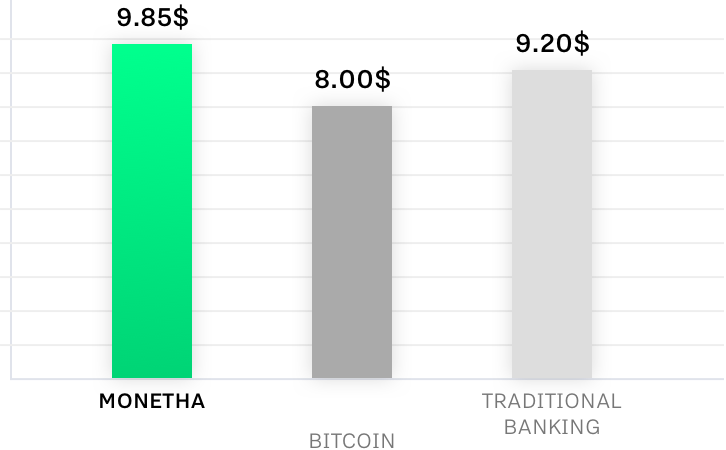
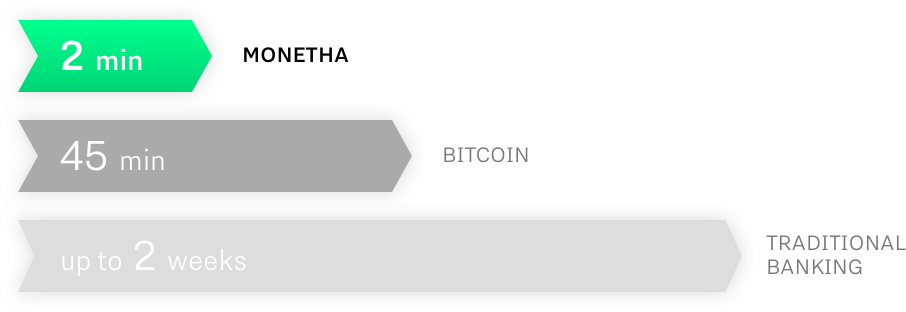
Images courtesy of Monetha
Through its built-in mobile compatibility, merchants can also accept mobile payments via ecommerce, retail and in-app payments. Statistics estimate that mobile payments will amount to US$1 trillion by 2019, so mobile compatibility is important for payment services.
Buyers need not pay with the Monetha wallet but can do so with any Ethereum wallet. Merchants can convert their Ethereum payments into fiat currency through a crypto exchange API.
Overall, Monetha seeks to greatly reduce the pain points associated with making payments.
Possible Issues With Monetha
Monetha is built on the Ethereum blockchain. Ethereum is experiencing latency and scalability issues, resulting in climbing fees, which could affect Monetha’s processing speeds and low fees.
The company, however, is positive that Ethereum’s Casper update will circumvent these issues, resulting in faster block processing and lowered gas prices (ether is measured in gas). This will come as a result of switching from proof-of-work to proof-of-stake.
Worst case scenario, should Ethereum not be able to live up to its intentions, Monetha has a contingency plan. It is platform agnostic; therefore, any smart contract-enabled platform that can scale efficiently can substitute Ethereum.
The People Behind Monetha
Monetha has a robust team who all have extensive business and/or programming experience.
Co-founder and technology lead Andrej Ruckij has held roles as head of development and VP at advertising technology giant AdForm. Co-founder and business lead Justas Pikelis is a serial entrepreneur in the IT and robotics field. Co-founder and product lead Laurynas Jokubaitis was the CEO of Wowtto, a digital outdoor advertising company that raised over EUR300k in VC. Jokubaitis and Ruckjj also co-founded Wowtto.
The Monetha Coin
Monetha’s ICO crowdsale famously raised US$38 million in 18 minutes. Over 2,200 investors enabled the company to reach its hard cap of 95,000 ETH. With 10 percent of the total token supply held by the company, Monetha has a thought-through plan for raising their token value, with a special focus on continued relationship-building with the community, product and business development, security, and exchange listings.

Last Thoughts
With bitcoin payments still dominating the market, it’s good to see ether payments being pioneered.
Monetha does have competition in BlockPay, Coinify, CoinPayments, and Cryptonator. Their ether-based business model, however, sets them apart and allows for potentially billions of dollars worth of business transactions annually that will bolster the Ethereum market.
Watch an overview of Monetha, and read the company’s FAQs and their whitepaper. Follow Monetha on Twitter, Facebook, Reddit, GitHub, or their blog. Their MVP, which you can test for yourself, is here.

